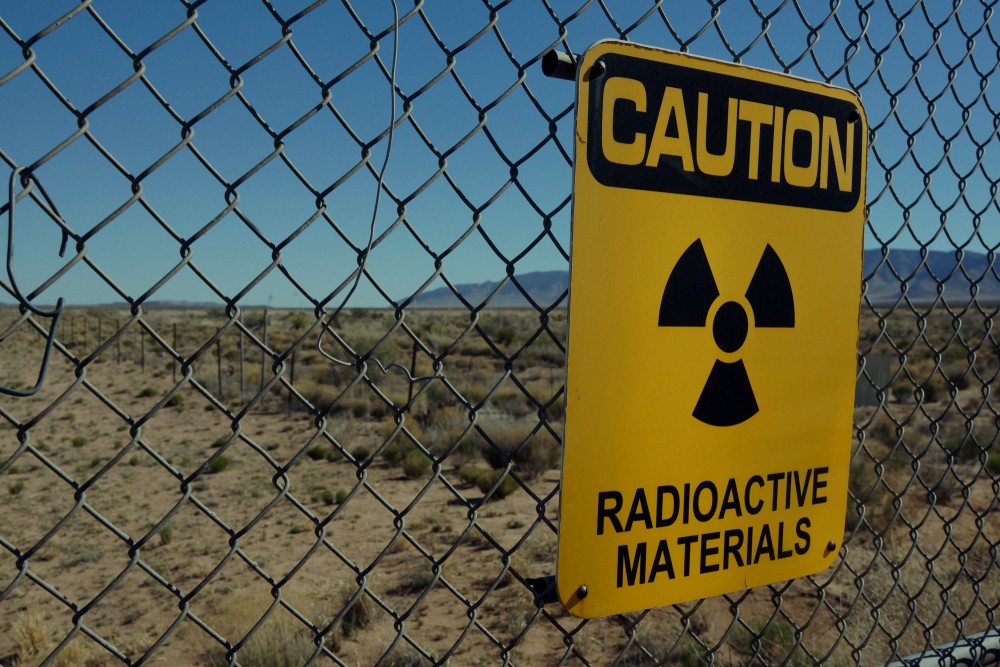This July marked 80 years since the U.S. government detonated the first atomic bomb in the desert of southern New Mexico, marking the start of the nuclear age — and an ongoing nightmare for the people who call the area home.
That test, known as Trinity, blanketed rural communities in radioactive fallout. No one was warned. No one was evacuated. Families drank radioactive rainwater, breathed in ash, and were left to carry the burden in silence.
Now, for the first time in history, those communities will finally be acknowledged.
Earlier versions of the Radiation Exposure Compensation Act (RECA), originally passed in 1990, offered compensation to “downwinders” impacted by nuclear testing in Nevada and to others who’d worked as uranium miners before 1971. But New Mexicans and other long suffering communities were left out.
But now that law, which expired last year, has been renewed and expanded to include New Mexico’s Trinity downwinders, post-1971 uranium mine workers, and other affected communities in Missouri, Tennessee, Alaska, Kentucky, and beyond.
But this long-overdue justice comes with a gut punch: the RECA expansion is buried inside Trump’s so-called “Big Beautiful Bill,” the GOP budget that slashes Medicaid, SNAP, and rural health care — lifelines for the very people this bill claims to protect — to finance tax cuts for the wealthy.
This is not justice.
I come from generations of Nuevomexicanos who’ve lived and worked on these lands for decades. Both of my grandparents have battled cancer. And while we may never get a clear answer, we can’t help but wonder if it was because of exposure to the radioactive legacy that’s haunted New Mexico for generations.
These aren’t isolated stories. They’re echoed across our pueblos, acequias, and towns. From the Navajo Nation, where uranium miners were sent underground without protection, to the 1979 Church Rock disaster — the worst nuclear spill in U.S. history — our communities have borne the brunt of nuclear colonialism while being erased from the story.
When RECA was passed in 1990, it excluded us. Even as cancers and birth defects multiplied, even as we buried our elders and our children, we were told our suffering didn’t count. When the program expired in 2024, it slammed the door shut on new claims.
Now, with a revival of RECA on the table, it’s a historic moment. But the same bill that expands RECA also threatens to strip millions of people of their basic health care.
I crunched the numbers in a new fact sheet for the Institute for Policy Studies.
In the 16 RECA-eligible states alone, I found that this bill will rip health insurance away from over 3.9 million people — including 103,719 in New Mexico, the very state whose residents were sacrificed to build the U.S. nuclear empire.
The total figure includes over 1.4 million people losing Medicaid coverage and another 2.5 million losing Affordable Care Act coverage. On top of that, a total of 240 rural hospitals in these states are considered at risk of closing.
These are not just numbers — they are lives. Aging uranium miners. Downwinders living in remote, medically underserved areas. Elders in rural towns who have no alternative when their hospital closes.
This bill gives with one hand and takes away with the other. That’s not justice — it’s policy murder.
I welcome the long-overdue recognition of downwinders from New Mexico and other impacted communities in RECA. But what does that mean if those same people are losing access to health care? Many rely on Medicaid and rural hospitals. If those lifelines vanish, how will they get diagnosed, let alone treated?
Even this “win” is short-lived: RECA would only be extended until the end of 2028, far too little time to reach, enroll, and support impacted communities.
Justice must come with real care. We shouldn’t have to trade one harm for another. We deserve compensation without compromise. RECA should be expanded for longer — without compromising Medicaid or rural health care.
We demand justice without sacrifice.
